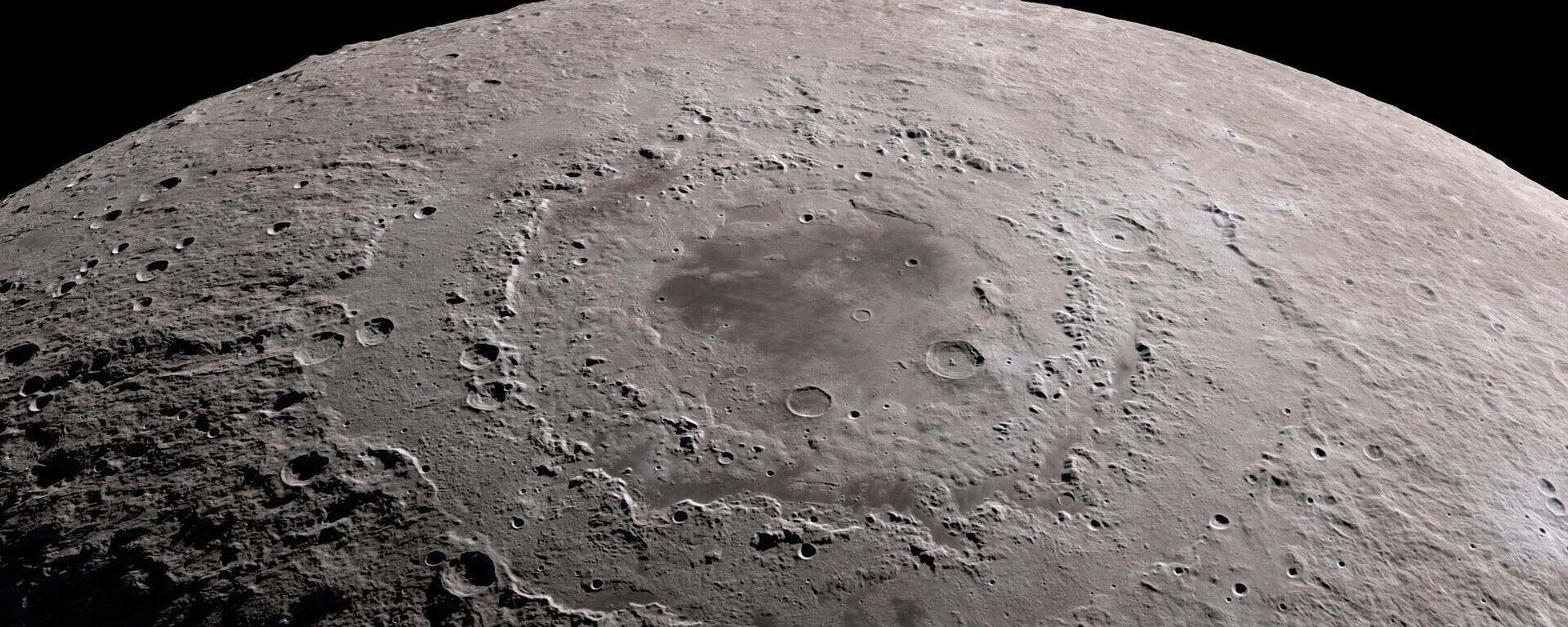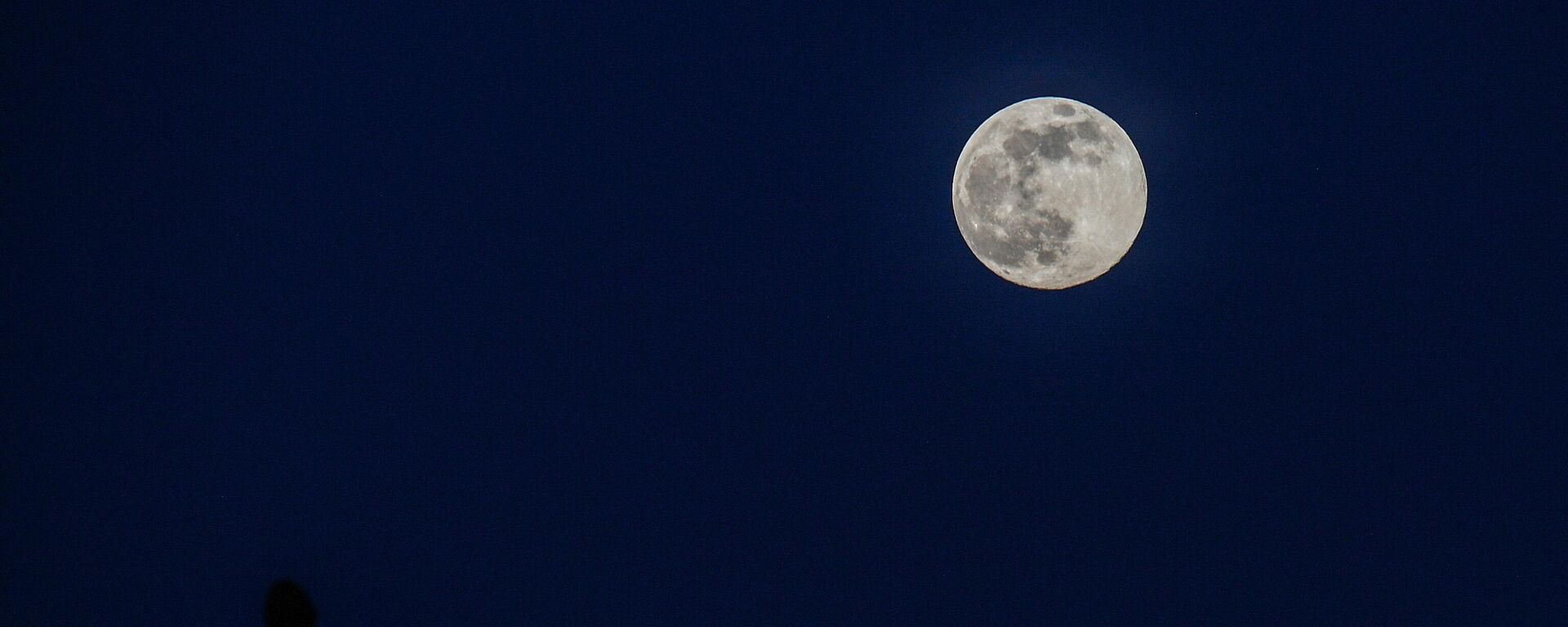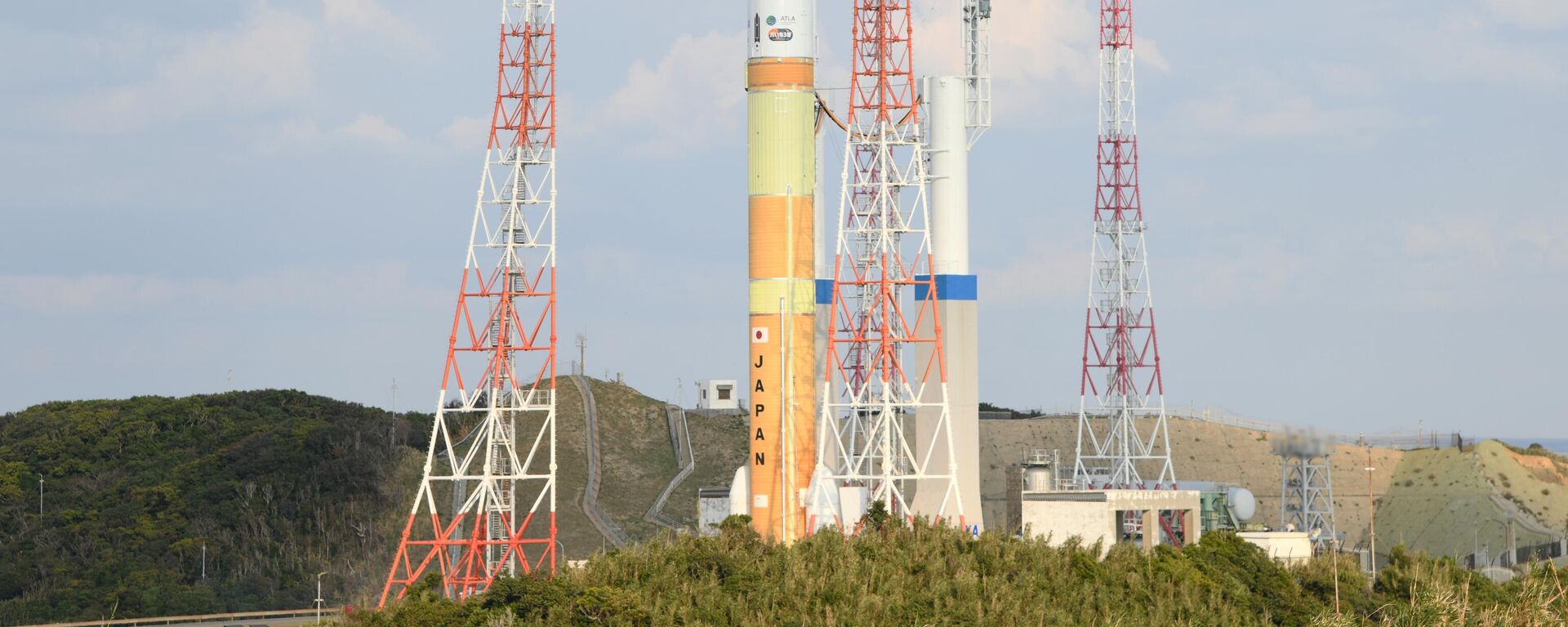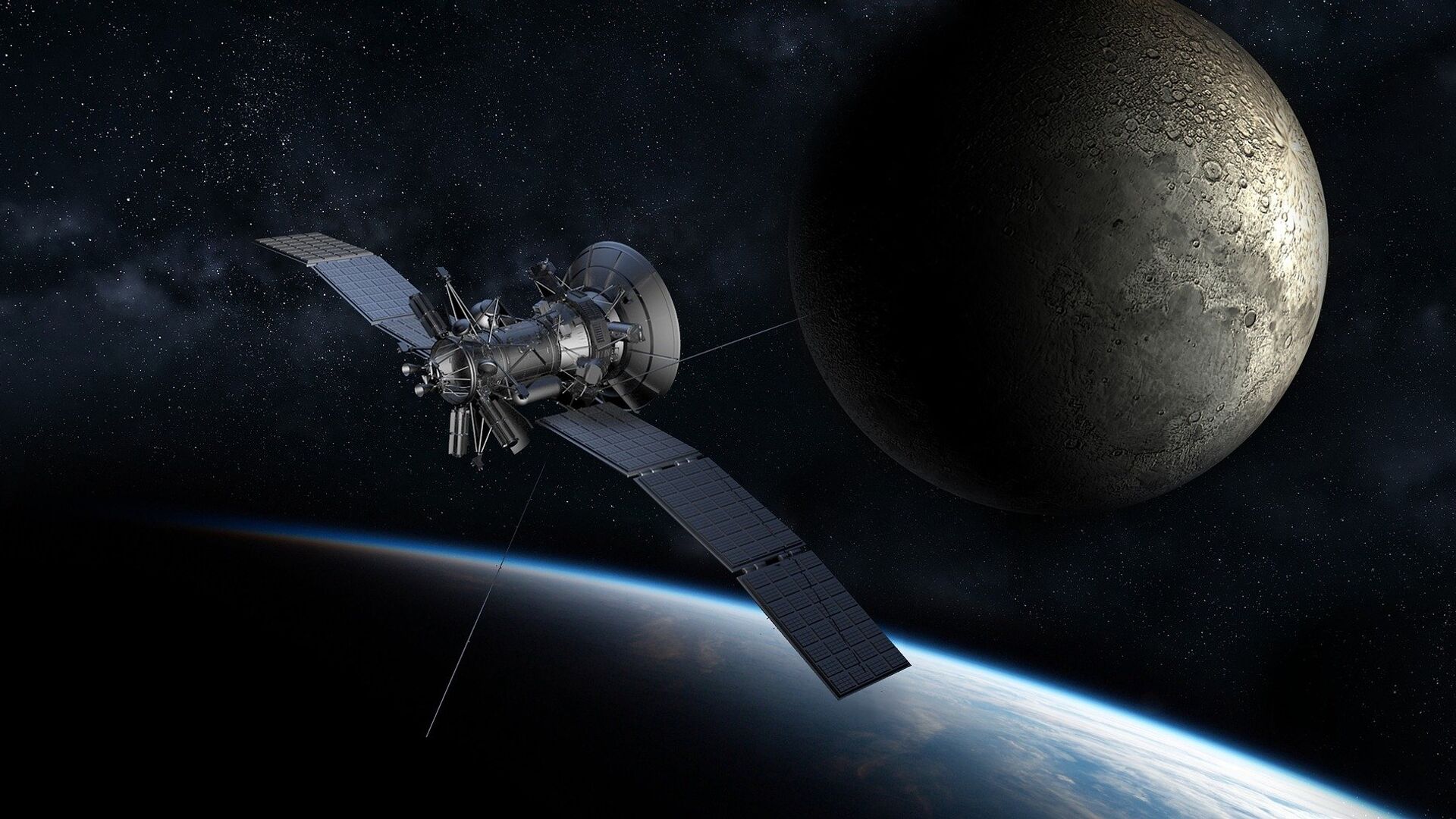https://sputnikglobe.com/20231129/russia-approves-joint-lunar-research-station-project-with-china-1115280350.html
Russia Approves Joint Lunar Research Station Project With China
Russia Approves Joint Lunar Research Station Project With China
Sputnik International
Russian government has approved ratification of the cooperation agreement on a joint Moon base project that was concluded between Moscow and Beijing in November last year.
2023-11-29T13:25+0000
2023-11-29T13:25+0000
2023-11-29T13:25+0000
beyond politics
russia
china
roscosmos
national space administration
chinese national space administration (cnsa)
lunar base
lunar station
chinese lunar exploration program
apollo
https://cdn1.img.sputnikglobe.com/img/104886/25/1048862553_13:0:1908:1066_1920x0_80_0_0_2788d34a05c3cd9e4136c48a7c6213b4.jpg
As the space race heats up, with a number of countries jostling to return humans to the Moon, Moscow and Beijing intend to work together to build a lunar station on the celestial body.The Russian government has approved the ratification of a cooperation agreement on a joint Moon base project that was concluded between Moscow and Beijing in November last year. Russia's state space corporation, Roscosmos, and the China National Space Administration (CNSA) will be the main participants in the project. However, the door is reportedly open for other potential international partners in the future.The project is to be implemented in three stages. Originally, it was announced in 2021 that Russia and China planned to ink an agreement on the joint Moon research base following the signing of the memorandum on lunar cooperation.Anatoly Petrukovich, head of the Space Research Institute at the Russian Academy of Sciences told Sputnik at the time that the sides had already started to discuss possible approaches to implementing the project. He explained that it would be logical to first create units on the Moon's surface from already existing materials for maximum efficiency and coordinate different joint projects using them. The station was planned to be used “to conduct multidisciplinary and multi-purpose research work.” In December 2022, head of Roscosmos Yuri Borisov announced that an intergovernmental agreement between the countries on the creation of the multi-state multi-station system had already been concluded.In October 2023, it was reported that construction of the international lunar station could be completed between 2035 and 2040.The Russia-China agreement on the Moon base project will serve to strengthen Moscow's strategic partnership with Beijing, Chairman of the Board of the Russian Lawyers' Association Vladimir Gruzdev told Russian media. It should be noted that China's International Lunar Research Station (ILRS) initiative is said to have attracted around 15 signatories, including Azerbaijan, The Asia-Pacific Space Cooperation Organization (APSCO), National Astronomical Research Institute of Thailand (NARIT), and others, as per representatives of the Deep Space Exploration Laboratory (DSEL) under the CNSA.Lunar Race Revs UpRussia is one of a handful of space powers that is determined to send humans back to Earth's natural satellite. The last human beings set foot on the Moon in December 1972 with Apollo 17, which marked the end of the US program of the same name in 1969-1972. The latter consisted of manned lunar reconnaissance missions. Now, NASA hopes to send astronauts back to the Moon by 2025 together with partners from the European Space Agency, the Japanese Aerospace Exploration Agency, and the Canadian Space Agency, and to create a sustained lunar presence by the year 2028.As for Russia, its Luna 9 became the first spacecraft to perform a soft landing on the Moon in 1966. In the 1970s, the Luna 17 and Luna 21 missions carried Lunokhod ("Moonwalker") robotic wheeled vehicles to explore the Moon’s terrain. The USSR had hoped to establish the Zvezda ("Star") Moon base with a garrison of 9-12 cosmonauts as early as the 1970s, but the project was scrapped after the collapse of the USSR in 1991. The post-Soviet Russian Luna-Glob ("Lunar Sphere") lunar exploration program was developed in the late 1990s and initiated in the 2010s.Meanwhile, China’s space program has been a key part of the country’s high-tech revolution, with a new generation of satellites having buttressed its rapidly growing economy as well as its military prowess. Lin Xiqiang, the deputy director of the Chinese Manned Space Agency (MSA), told reporters this may that China would prepare for a “short stay on the lunar surface and human-robotic joint exploration” before 2030."Our astronauts will walk on the moon, collect samples around the landing site and perform some in-situ research. This will lead off our manned missions from low-Earth orbit to deep space and help deepen mankind's knowledge about the origin and evolution of the moon and the solar system," Lin added.There are other countries jostling in the race to the Moon, such as India, buoyed by the recent success of its first mission to the Moon, and Japan, whose effort to mark the first private lunar landing on Earth's satellite was unsuccessful earlier in the year.
https://sputnikglobe.com/20231005/chinas-latest-lunar-expedition-targets-far-side-of-the-moon-in-2024-1113946594.html
https://sputnikglobe.com/20230825/russia-could-send-new-mission-to-south-pole-of-moon-in-2025-2026---roscosmos-1112879760.html
https://sputnikglobe.com/20231124/japan-to-splurge-1-trillion-in-asian-space-race-with-india-china-and-dprk-1115184109.html
russia
china
Sputnik International
feedback@sputniknews.com
+74956456601
MIA „Rossiya Segodnya“
2023
News
en_EN
Sputnik International
feedback@sputniknews.com
+74956456601
MIA „Rossiya Segodnya“
Sputnik International
feedback@sputniknews.com
+74956456601
MIA „Rossiya Segodnya“
russia-china joint lunar base project, russia's state space corporation, roscosmos, china's national space administration, space race, race to the moon
russia-china joint lunar base project, russia's state space corporation, roscosmos, china's national space administration, space race, race to the moon
Russia Approves Joint Lunar Research Station Project With China
Russia and China first came up with a roadmap for the joint construction of a lunar base back in the summer of 2021. The following year, they signed a memorandum of understanding on joint exploration of the Moon, and pledged to work together to build a base there by the 2030s.
As the
space race heats up, with a number of countries jostling to return humans to the Moon, Moscow and Beijing intend to work together to build a lunar station on the celestial body.
The Russian government has approved the ratification of a cooperation agreement on a
joint Moon base project that was concluded between Moscow and Beijing in November last year. Russia's state space corporation,
Roscosmos, and the
China National Space Administration (CNSA) will be the main participants in the project. However, the door is reportedly open for other potential international partners in the future.
The project is to be implemented in three stages.
Stage 1 presupposes Russian and Chinese lunar missions exploring the Moon together, determining the best location for the Lunar station, and verifying technologies to ensure a safe, high-precision soft landing on the surface of the Earth's natural satellite. For this stage, Russia is reportedly planning to utilize the
Luna-Glob lander.
Stage 2 envisages establishing a control center for the Lunar base, delivery of bulk cargo, and setting up orbital modules for supply of power, communications, and provision of transport services.
Stage 3 involves the exploration of the Moon's surface, expanding the functionality of the Lunar station modules, and assisting international partners of the inclusive project in landing a man on the Moon. According to the document signed by Russia and China, cited by outlets, the sides agreed that goods transported under this agreement will be exempt from customs duties and taxes. As regards funding for the creation of the Luna-Glob and Luna-Resurs-1 space complexes, it will be carried out within the framework of the Russian space program.

5 October 2023, 12:05 GMT
Originally, it was announced in 2021 that Russia and China planned to ink an agreement on the joint Moon research base following the signing of the memorandum on lunar cooperation.
Anatoly Petrukovich, head of the Space Research Institute at the Russian Academy of Sciences told
Sputnik at the time that the sides had already started to discuss possible approaches to implementing the project. He explained that it would be logical to first create units on the Moon's surface from already existing materials for maximum efficiency and coordinate different joint projects using them. The station was planned to be used “
to conduct multidisciplinary and multi-purpose research work.” In December 2022, head of
Roscosmos Yuri Borisov announced that an intergovernmental agreement between the countries on the creation of the multi-state multi-station system had already been concluded.
In October 2023, it was reported that construction of the international lunar station could be completed between 2035 and 2040.
The Russia-China agreement on the Moon base project will serve to strengthen
Moscow's strategic partnership with Beijing, Chairman of the Board of the Russian Lawyers' Association Vladimir Gruzdev told Russian media. It should be noted that China's International Lunar Research Station (ILRS) initiative is said to have attracted around 15 signatories, including Azerbaijan, The Asia-Pacific Space Cooperation Organization (APSCO), National Astronomical Research Institute of Thailand (
NARIT), and others, as per representatives of the Deep Space Exploration Laboratory (DSEL) under the CNSA.

25 August 2023, 10:20 GMT
Russia is one of a handful of
space powers that is determined to send humans back to Earth's natural satellite. The last human beings set foot on the Moon in December 1972 with
Apollo 17, which marked the end of the US program of the same name in 1969-1972. The latter consisted of manned lunar reconnaissance missions. Now,
NASA hopes to send astronauts back to the Moon by 2025 together with partners from the European Space Agency, the Japanese Aerospace Exploration Agency, and the Canadian Space Agency, and to create a sustained lunar presence by the year 2028.
As for Russia, its Luna 9 became the first spacecraft to perform a soft landing on the Moon in 1966. In the 1970s, the Luna 17 and Luna 21 missions carried Lunokhod ("Moonwalker") robotic wheeled vehicles to explore the Moon’s terrain. The USSR had hoped to establish the Zvezda ("Star") Moon base with a garrison of 9-12 cosmonauts as early as the 1970s, but the project was scrapped after the collapse of the USSR in 1991. The post-Soviet Russian Luna-Glob ("Lunar Sphere") lunar exploration program was developed in the late 1990s and initiated in the 2010s.
Meanwhile,
China’s space program has been a key part of the country’s high-tech revolution, with a new generation of satellites having buttressed its rapidly growing economy as well as its military prowess. Lin Xiqiang, the deputy director of the Chinese Manned Space Agency (MSA), told reporters this may that China would prepare for a “
short stay on the lunar surface and human-robotic joint exploration” before 2030.
"Our astronauts will walk on the moon, collect samples around the landing site and perform some in-situ research. This will lead off our manned missions from low-Earth orbit to deep space and help deepen mankind's knowledge about the origin and evolution of the moon and the solar system," Lin added.
There are other countries jostling in the race to the Moon, such as India, buoyed by the
recent success of its first mission to the Moon, and Japan, whose effort to mark the first private lunar landing on Earth's satellite was unsuccessful earlier in the year.

24 November 2023, 12:54 GMT





